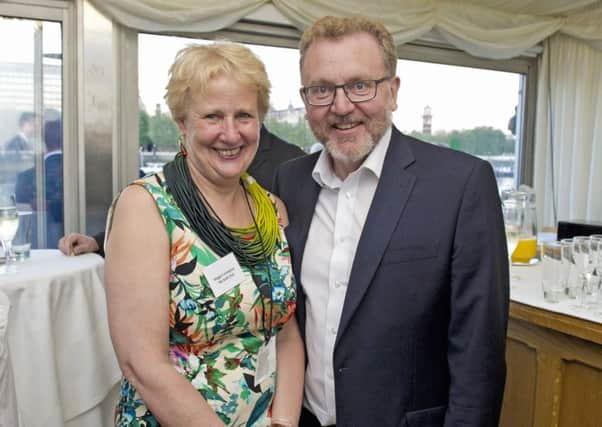Grow Gaelic TV and harvest economic benefit


Members of Parliament heard this week that if increased resources are made available to BBC ALBA this can deliver both for audiences and the Scottish creative economy.
The aim is to achieve parity for the Gaelic language channel with Welsh counterpart S4C and there is a drive to see the new Royal Charter enshrine a commitment from the BBC towards 10 hours of new programming per week – up from the current level of 4.2 hours. This commitment would bring BBC ALBA into line with S4C, which has enjoyed 10 hours of new programming per week from the BBC for the last 30 years.
Advertisement
Hide AdAdvertisement
Hide AdWestern Isles MP Angus MacNeil MP, who attended the event on Monday, said he was pleased to see so many MPs taking the time to hear more about Gaelic programming.
He said: “I fully support MG ALBA’s call for parity for the Gaelic language with Welsh counterpart S4C and will push for the new Royal Charter to include a commitment from the BBC to 10 hours of new programming for BBC ALBA each week.
“The current level is just 4.2 hours and what they do produce is topical, of high quality and attracts high viewing figures.
“Given the chance to produce another 5.8 hours per week would bring huge opportunities for the creative sector across Scotland, including Na h-Eileanan an Iar and would entice even more viewers to the channel.
Advertisement
Hide AdAdvertisement
Hide Ad“The existence of a Gaelic channel has made a massive impact in terms of awareness of the language and culture and we need to allow it to continue to develop and grow.
“At the end of last year the UK Government removed all of its funding for Gaelic TV, a decision which was taken without a second thought. This commitment within the Royal Charter is needed more than ever.”
During 2015-16, BBC ALBA commissioned 454 hours of content from 26 different production companies, with an estimated 300 jobs (40 per cent in the Highlands and Islands) as a result of those activities.
MG ALBA chairperson, Maggie Cunningham, said: “BBC ALBA is currently allocated 3p of the £12.13 monthly licence fee. By comparison, the BBC spends more than 10 times that on S4C.
Advertisement
Hide AdAdvertisement
Hide Ad“However, we are not simply asking for more money. Existing BBC resources could and should be used more effectively to deliver for Gaelic audiences.”
Ms Cunningham highlighted last week’s publication of the Scotland Annual Review 2015-16 by the BBC Trust as evidence for the growing demand for improved content.
Maggie Cunningham continued: “BBC ALBA has been an outstanding success since it launched in 2008 but it is clear that the channel has now reached a juncture where it needs more resources to continue its development. We have a repeat rate of 74% and it needs to be tackled.
“The recent BBC Trust Annual Review report acknowledged that whilst the channel is continuing to outperform viewership targets, it suffers from under-funding which may not be sustainable in the longer term.
Advertisement
Hide AdAdvertisement
Hide Ad“It is our firm belief that one mechanism to address this issue is by increased sharing of content from other BBC departments.
“We have seen excellent examples such as the Hebrides series that was successful across both BBC ALBA and BBC Scotland.
“This is not to say that BBC ALBA simply requires more content handed down from the main channels - a more responsive system of programme-making within the BBC may allow us to collaborate far easier across a range of genres including children’s programming, music and documentaries.
“Increasing original content to 10 hours per week does not have to mean a hugely increased pot of cash.”
Advertisement
Hide AdAdvertisement
Hide AdThe success of BBC ALBA’s Gaelic drama Bannan is one of a number of productions to provide a boost to the Highland and Islands creative economy and Ms Cunningham added its success could be built upon if BBC ALBA was strengthened with more original programming.